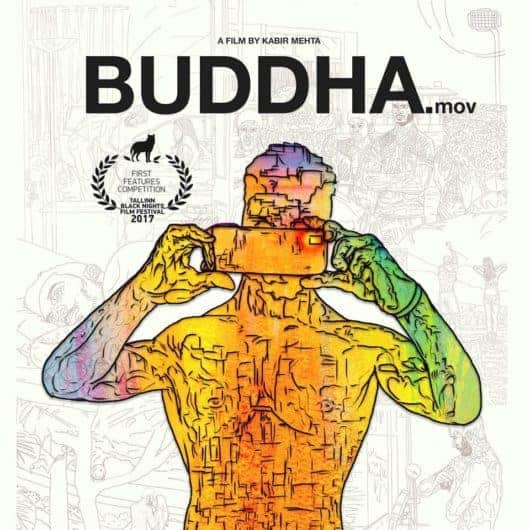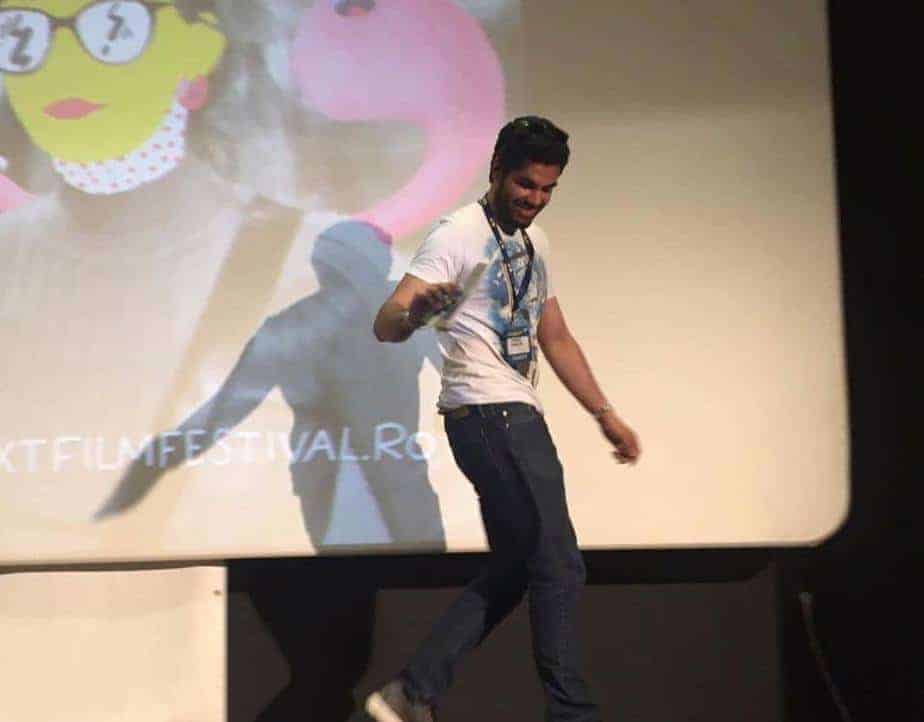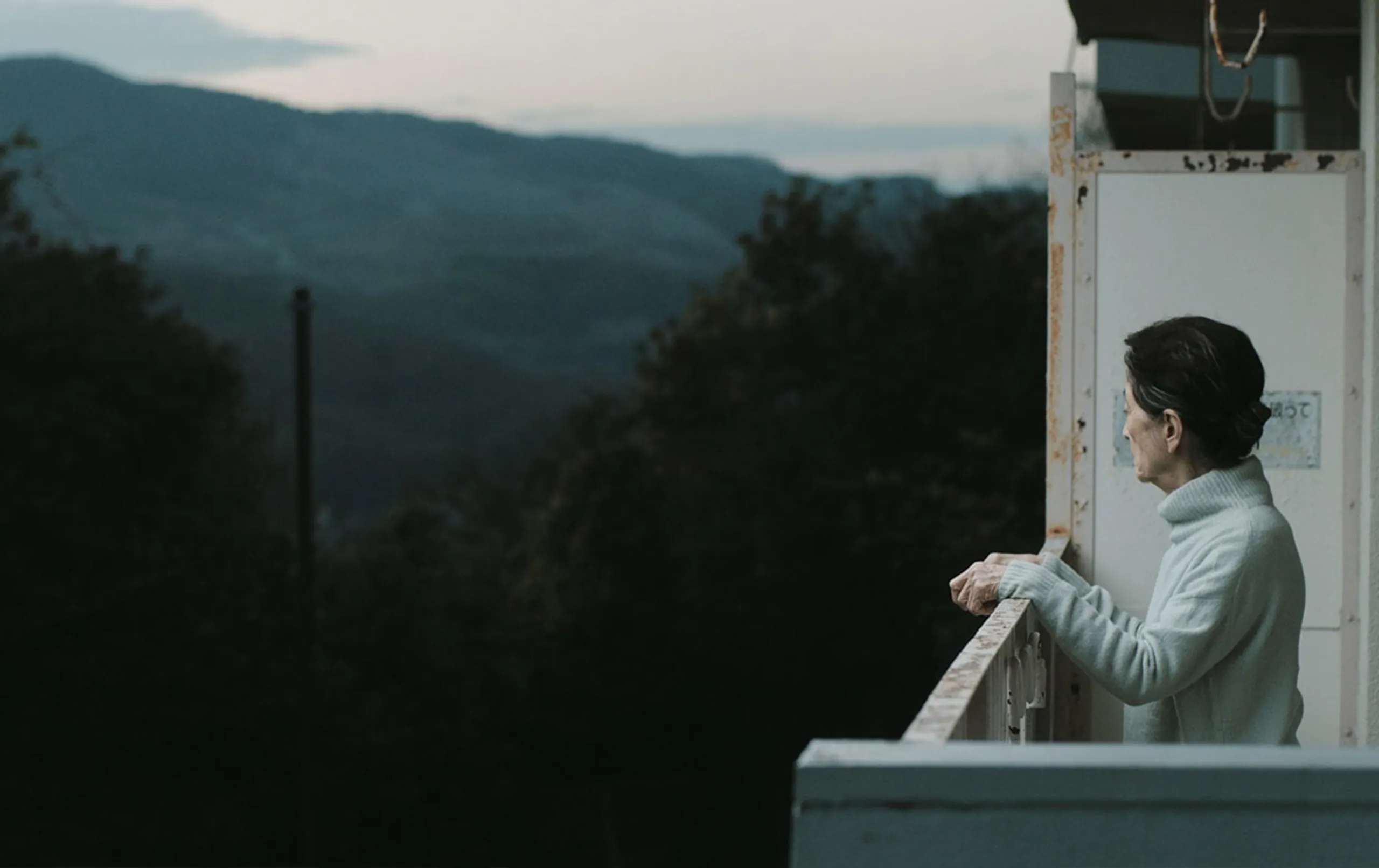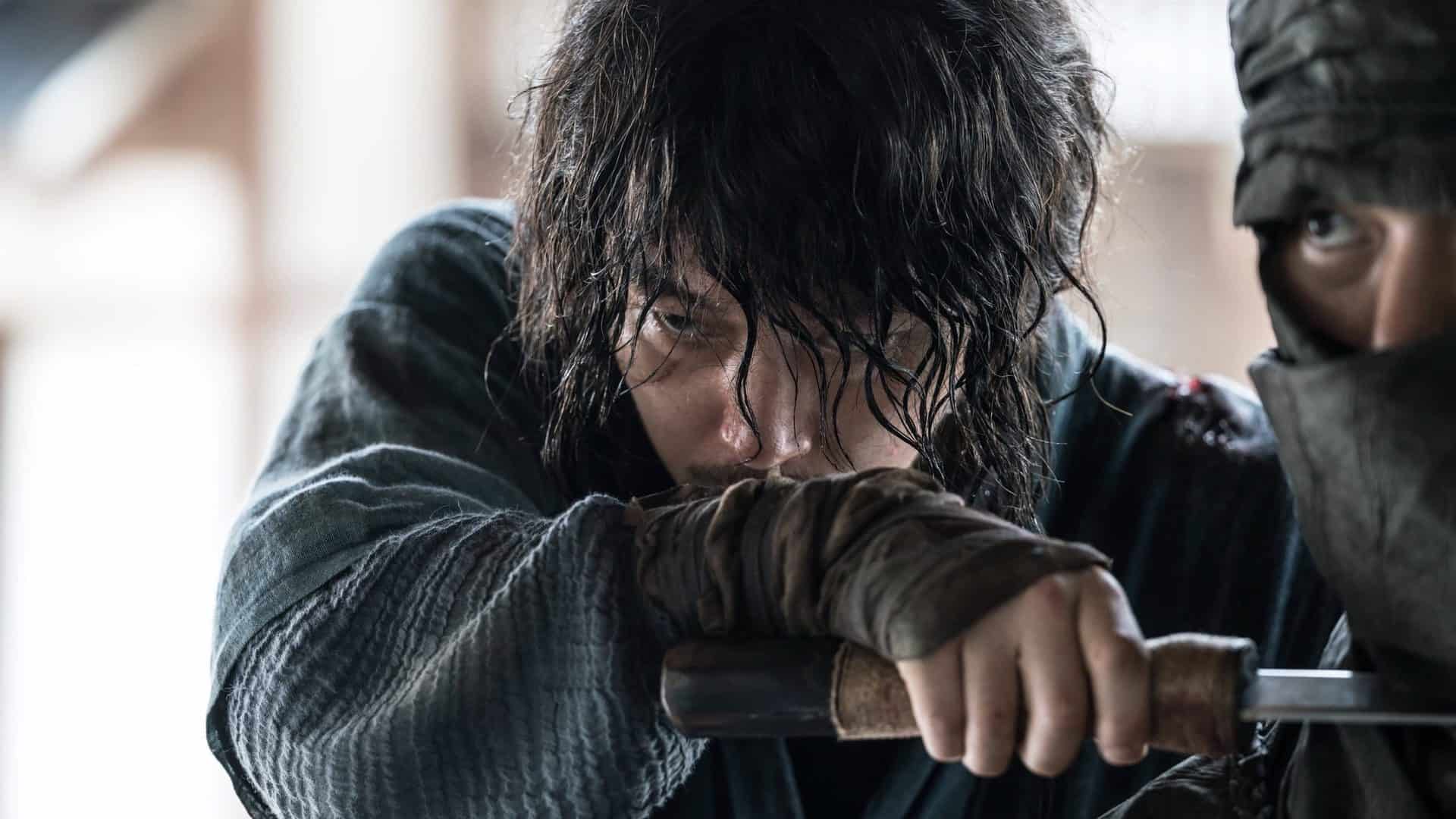Kabir Mehta's first film, Sadhu in Bombay (2017), a short docu-fiction, had its North American premiere at the Slamdance Film Festival and subsequently won the award for Best Narrative Film at the 55th Ann Arbor Film Festival. Mehta's first feature, Buddha.mov, had its world premiere at the 2017 Tallinn Black Nights Film Festival in the First Features Competition.
We speak with him about Buddhadev Mangaldas and their cooperation, the differences between mockumentary and documentary, irony, sex in film, and other topics
“Buddha.mov” screened at Mumbai Film Festival

Why did you choose to shoot a mockumentrary and why did you choose Buddhadev Mangaldas as your “subject”? How does the directorial approach towards such a movie differs than a regular “documentary” or even a feature film?
Off late, I have realized that my approach to filmmaking has become one that questions the process itself. Not only am I interested in who or what is being watched, but also in who is doing the watching and how.
I am fascinated by this question of identity and I feel that is the essence of my film. I was surprised by the degree of access Buddha (Buddhadev Mangaldas) allowed the filmmaker of even the most intimate aspects of his life. He had no qualms forsaking privacy for the benefit of the larger narrative that he wished to project of himself. In a way, for him, this film was to become just another Instagram post. I was struck by his honesty and uninhibited personality. The exhibitionist in him got to me!
To be honest, my approach isn't very different. In my mind, these divisions are intricately braided, and this reflects in my work almost instinctively. There is something very exciting and real about messing up documentary with fiction.

How was your cooperation with Mangaldas ? Did you have to convince him to appear nude in the film? In general, how did you guide him for his “role”? How similar is the man presented in the film with the actual Mangaldas?
This is really interesting. When we started filming, Buddha was extremely excited to be in a film. To him, this was going to be an MTV-style documentary about the high-octane life of a sports star.
His knowledge of the visual medium often caught me by surprise – he seemed to know how to use it for maximum effect. This is when I would have to think to myself, is this really happening or is he putting it on for me? It seemed to throw the very notion of the film's authorship up for contention. As filmmakers, we assume our role as the author very easily. But now a new layer of tension seemed to emerge – the film that was in Buddha's mind versus the one that was in mine. For me, this was a tad mystifying, but it is what made it all the more fun.

The film seems to mock a number of subjects in a very ironic tone. Why did you choose this approach? What is your actual opinion about obsession with social media, the way alpha males and particularly sport stars conduct themselves, and the debate about the role of women in society? Particularly regarding the last aspect, are you afraid that you will be accused of racism against women?
While the film is a take on today's social media stardom and digital screen culture, it is aware of the fact that it belongs to the same world it (affectionately) criticizes.
But I am more interested in exploring what it means to be a man in the 21st century. I often find that discussions around gender and masculinity, even in contemporary cinema, inevitably get boiled down to simplistic binaries, almost making it seem as if masculinity and vulnerability are separate, contradictory experiences. In “BUDDHA.mov”, I want to treat these experiences as one.
The question of morality is a larger one, something that I've thought about a lot. At its most essential, cinema is an exploration of human condition. I feel that imposing my own moral codes would impede this exploration in the truest, most authentic way. I love that people are confronted with a moral dilemma when they watch the film – is this real? Is this staged? Do the people on camera know? Do they not? It's in these grey murky waters that I want my films to live. Morality, I remember someone saying, makes for false cinema.
Why did you choose to shoot the sex scenes through long-shots and Mangaldas nudity in close up?

This goes back to the film's ironic tone, which you so rightly brought up earlier. The film questions everything society considers intimate. But it also questions the act of filmmaking, We're used to seeing sex in films as something titillating, often used to evoke strong emotions or worse…used as a mere index card to announce change in a character's relationship. I find this highly gimmicky and artificial. Hence, in my film the approach is to desexualise the act altogether.
How was the shooting like? Any memorable episodes, good or bad?
Nothing in particular but while shooting I was always fascinated when some times I was interrupted by local authorities and I would find that Buddha would break out of a shot and use his celebrity to muscle his way in to ensuring filming went on smoothly…and then return to ‘playing' out his life for me and my camera. Mind blowing!
Can you give us some details about VR Peon, your next project?
“VR Peon” is a film I'm currently developing- a pulpy comedy, set in Gurgaon, laced with virtual reality, cam-sex and sleazy ashrams.















